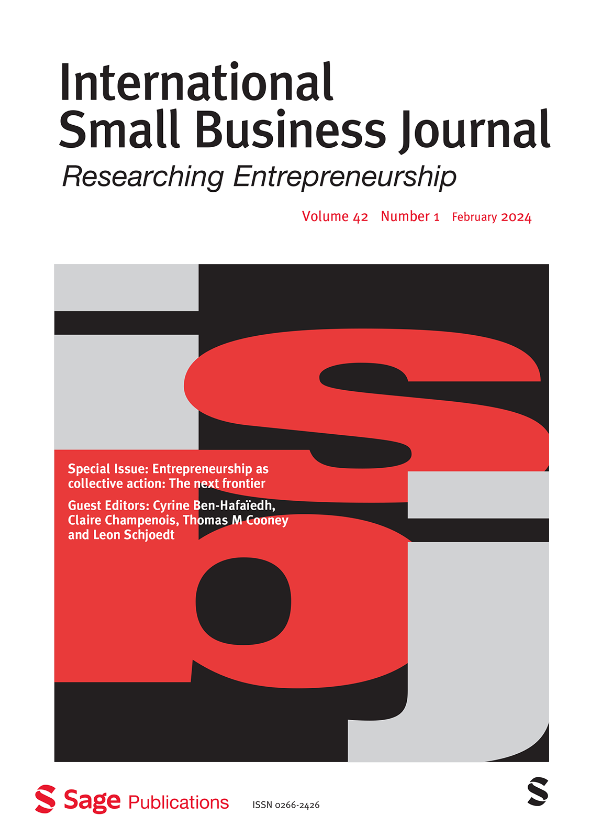年度评论文章:设计驱动的创业的双重心态:制作和以手工艺品为中心的创业教育的案例
IF 3.9
2区 管理学
Q1 Business, Management and Accounting
International Small Business Journal-Researching Entrepreneurship
Pub Date : 2023-05-03
DOI:10.1177/02662426231160525
引用次数: 0
摘要
在过去的十年里,新的设计驱动方法,如设计思维、客户发现和精益创业,在创业教育(EE)中越来越受欢迎。然而,它们的采用的特点是在理解其理论基础方面存在困惑,以及将这些新方法引入强调概念而非经验、情商和制造的教育文化的挑战。本文认为,通过更好地将设计驱动和以工件为中心的创业原则转化为教学实践,可以改进这些新教学方法的实施。为了实现这一目标,基于创业作为一门设计科学的辩论的最新进展、无形资产在经济中日益重要以及人工智能(AI)对就业市场和学生就业能力的挑战,提出了一个EE制造教育学模型,并提出了理论和经济论点。概述了成功采用这种教学法的关键要素以及可能阻碍其全面部署的常见误解。本文章由计算机程序翻译,如有差异,请以英文原文为准。
Annual review article: The dual mindset of design-driven entrepreneurship: The case for a pedagogy of making and artefact-centred entrepreneurship education
In the last decade, new design-driven approaches, such as Design Thinking, Customer Discovery, and Lean Start-up, have gained popularity in entrepreneurship education (EE). However, their adoption has been characterised by confusion in understanding their theoretical underpinnings and the challenge of introducing these new methods into a pedagogic culture emphasising ideation over experience, emotional intelligence, and making. This article argues that the implementation of these new pedagogic approaches can be improved by better translating the principles of design-driven and artifact-centered entrepreneurship into pedagogical practices. To achieve this goal, a model for a pedagogy of making in EE is proposed along with theoretical and economic arguments based on recent advances in the debate on entrepreneurship as a design science, the growing importance of intangibles in the economy, and the challenges of artificial intelligence (AI) to the job market and student employability. The critical elements for successfully adopting such pedagogy and common misconceptions that can hinder its full deployment are outlined.
求助全文
通过发布文献求助,成功后即可免费获取论文全文。
去求助
来源期刊
CiteScore
10.80
自引率
8.50%
发文量
49
期刊介绍:
The International Small Business Journal (ISBJ) is a leading peer-reviewed journal renowned for publishing high-quality original research papers on small business and entrepreneurship. It prioritizes research-based studies that contribute to theory development, critical understanding, and policy formulation related to small firms.
ISBJ papers encompass theoretical, methodological, and empirical studies from various disciplines and perspectives, aiming for research excellence in the field. The journal provides a critical forum for world-class contributions analyzing entrepreneurship and entrepreneurial behavior.
This refereed journal is valuable to academics, policymakers, analysts, government and business officials, small business representative bodies, and support agencies seeking to gain insights into the sector, trade, business institutions, and related matters.

 求助内容:
求助内容: 应助结果提醒方式:
应助结果提醒方式:


